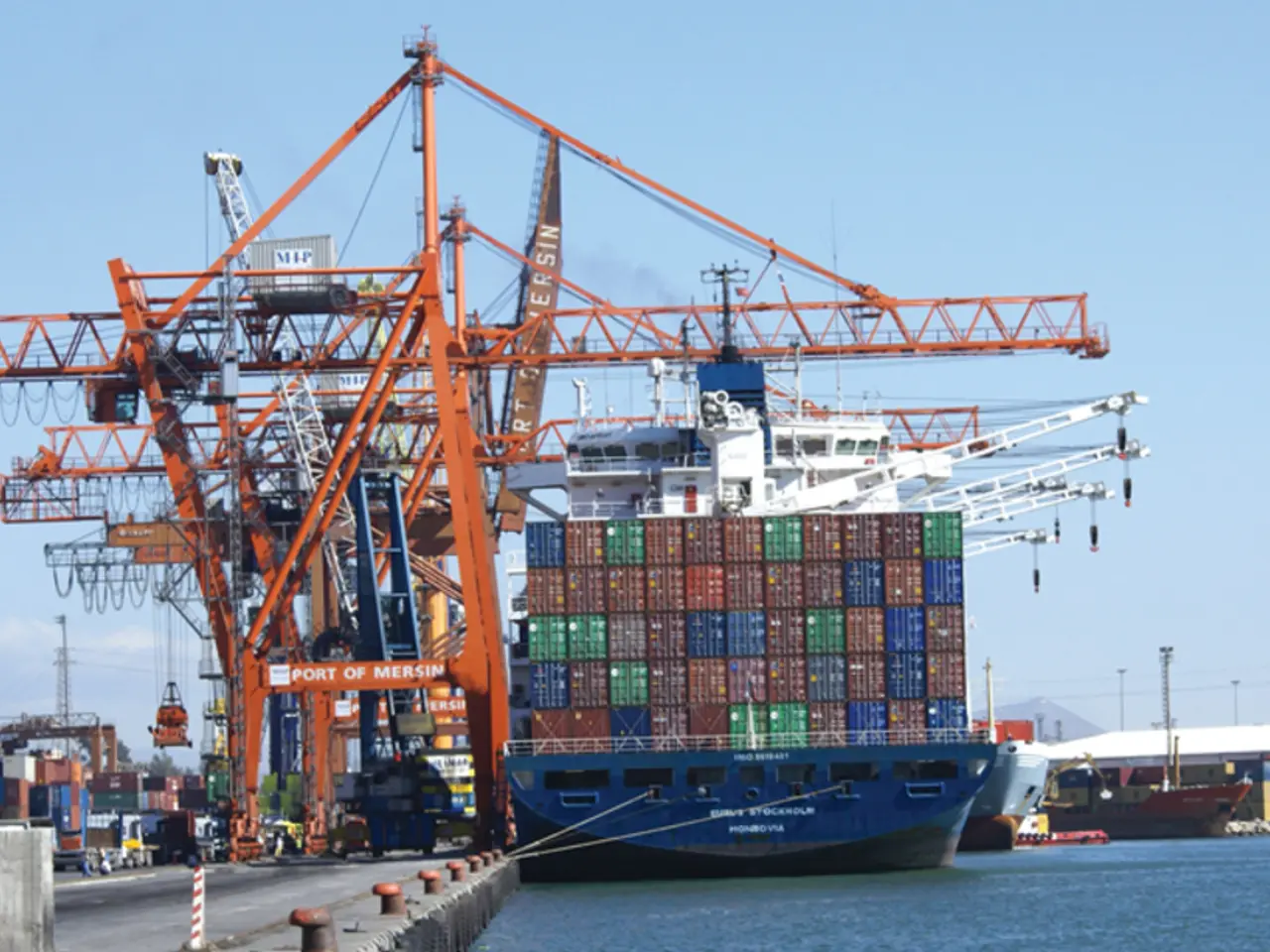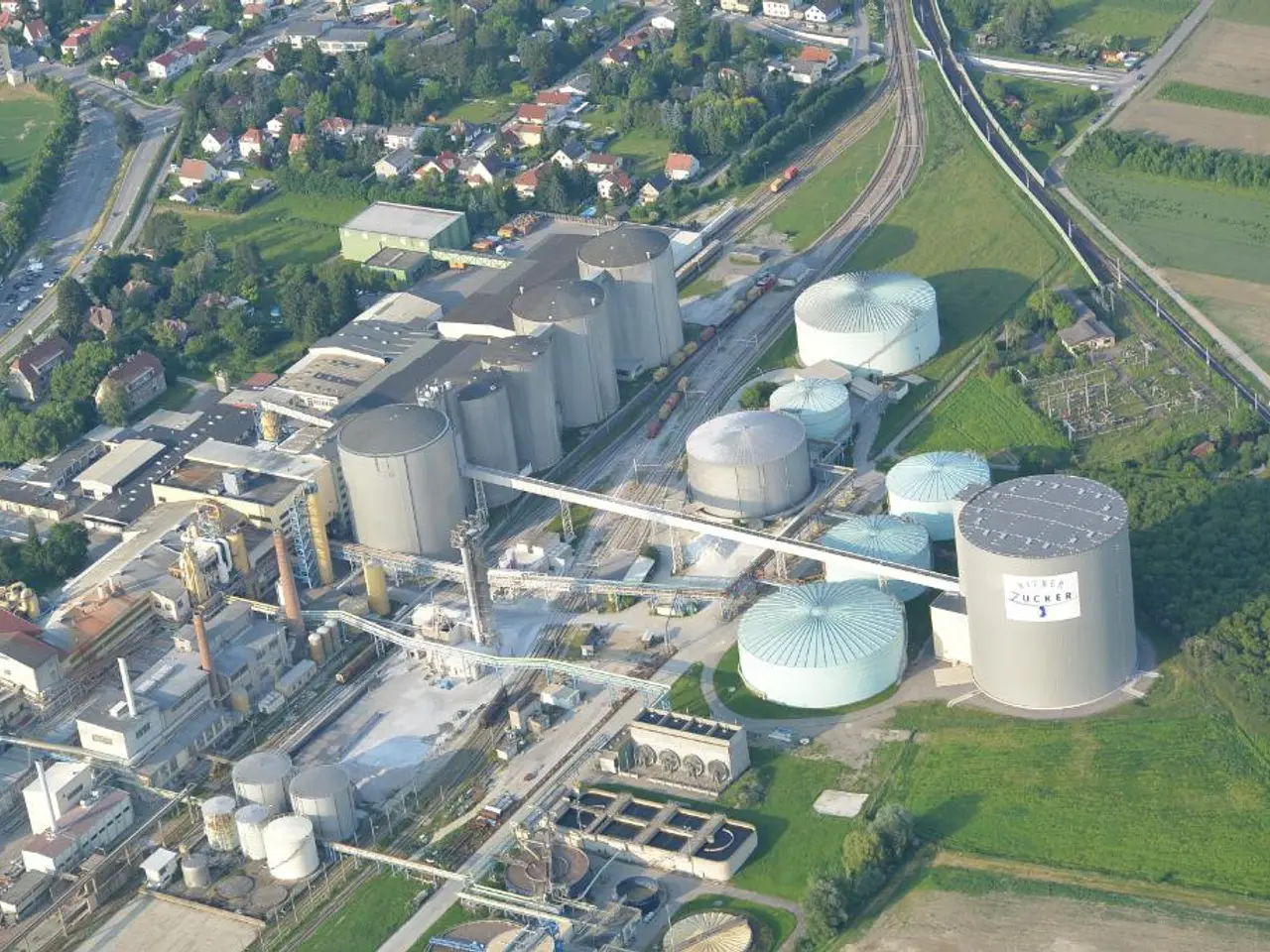Impact of Trade Surplus on Economic Expansion & Currency Value, Examining Advantages and Disadvantages
Revised Article:
Fancy yourself a smart cookie? Let's talk trade surplus and see how much you really know about this economic jargon.
A trade surplus happens when a country's exports beat its imports, creating a positive trade balance. This little economic phenomenon affects our pocketbooks more than you might think. But let's not get ahead of ourselves. Let's break it down.
First things first, when international trade takes place, two currencies exchange hands. With a trade surplus, our currency becomes more valuable because people outside our country are eager to buy our goods. Meanwhile, as we buy stuff from other countries, we sell our currency to them. Ta-dah! A higher demand for our currency.
But what exactly causes a trade surplus? A few factors, my friend. The cheapness and quality of our products play a crucial role. Lower costs and better products make us more competitive in the global market.
Sounds rosy, doesn't it? But wait. Other factors can mess with our trade surplus game. The exchange rate, economic growth (our own and that of our trading partners), and inflation can all influence our trade balance.
Now, calculating a trade surplus is a cinch. You just subtract the total value of our imports from our exports. If the result is positive, hooray! We have a surplus! If it's negative, well, we've got some work to do to avoid a trade deficit.
So, you might be wondering, what's the big deal about a trade surplus? Well, a trade surplus can be a double-edged sword. While it can encourage economic growth and boost tax revenue, it can also arise at the expense of future growth if we invest too much overseas. It can also make us vulnerable to external demand shocks, leaving us high and dry when the global economy takes a dive.
Still with me? Great! Let's dig a little deeper...
Economic Growth and Trade Surplus
Remember when we said economic growth affects our trade surplus? Well, here's how. Economic growth increases demand for goods and services, which can lead to an increase in imports. But it can also boost our exports, helping our trade surplus. However, imports often rise faster than exports, narrowing or even reversing our trade surplus.
Trade Surplus Effects on the Economy
While a trade surplus can negatively impact our economy in some ways, it can also have positive effects. It can increase foreign exchange reserves, stabilize our currency, and demonstrate strong international demand for our goods and services, further boosting our economic competitiveness.
But remember, there's a feedback loop between our trade surplus and our currency exchange rate. A trade surplus can cause our currency to appreciate, making our exports more expensive and our imports cheaper. This can taper off our trade surplus over time. The opposite can happen if increased imports widen our trade deficit and weaken our currency.
Pros and Cons of a Trade Surplus
So, what's the final verdict on trade surpluses? Well, it's not quite that simple. While they can encourage economic growth and boost tax revenue, they can also come at the expense of future growth. They can also make us more vulnerable to external demand shocks and reduce domestic consumption.
On the plus side, a trade surplus allows us to buy assets from other countries, improves our sovereign rating, and reduces the need for protectionism. But remember, relying too heavily on exports can make us vulnerable to external demand shocks and weak domestic consumption.
Look No Further
Ready to dive even deeper into the world of trade surpluses and trade deficits? Check out our learning resources section to keep expanding your knowledge!
- Absolute Advantage: Understand Why Countries Trade + Assumptions, Criticism
- Passive Exports: The Low-Effort Option for New Exporters
- Exports: Boosting Sales, Driving Growth + Determinants, Impacts
- Closed Economy vs. Open Economy: Trade-Offs & Global Growth
- Non-Tariff Barriers: Hidden Hurdles in Global Trade - Types, Reasons, Pros, Cons
- Benefits of International Trade
- Reasons Why International Trade Exists
- Why Countries Import: A Look at Factors Affecting Imports
- Imports Impact: Competition, Growth, Inflation & More
Sources: 1. tradebalance.com 2. investopedia.com 3. ecb.europa.eu 4. mpo.org 5. imf.org
Investing in foreign assets could potentially be one way to capitalize on a trade surplus, as excess funds may be used for overseas acquisition. Conversely, over-reliance on exports and heavy investment abroad could lead to a subsequent trade deficit, posing a risk to the overall financial health of the country.








